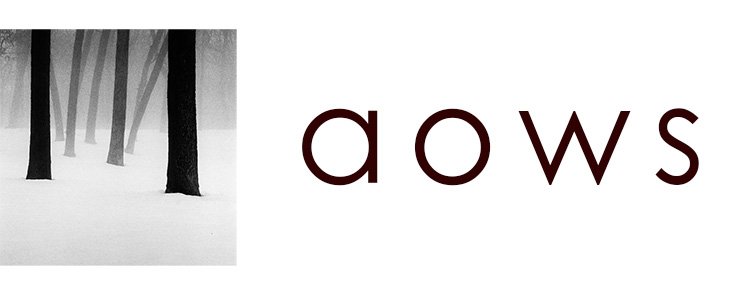I have way too much camera equipment, and most of it I don’t even use, so I’ve been on a selling spree lately. I sold a few things including some lenses, but when I found these two sitting on a shelf in the closet, they made me pause. They are the Zeiss 16-70mm f/4 and the Sony G 70-350mm. I made so many good images with these two back in the day… but I haven’t touched them in a while. So, to decide whether I love them or list them, I’m taking both out to Lake Michigan to shoot some amazing winter scenes and see if they can still perform.
journal
Featured in RPS Creative Eye Magazine #99
I wrote a little article on photography as a daily habit for the Creative Eye Magazine from the Royal Photography Society. Honored to be part of their issue number 99!
Embrace Imperfection and Creative Limitations in Photography
Fellow photographer Matt Payne had me on his show "F-Stop Collaborate and Listen". We had a very interesting conversation about photography, and how it can be more than an artistic pursuit and become a lifestyle.
The most intense day of my photography career ~ New York City snowstorm
A huge winter storm dumped tons of snow across much of the US, so I knew I had to go somewhere to photograph an event like this. When I found out New York City was going to get around a foot of snow, I knew what I had to do. I got in my car and drove 700 miles from Indiana to be there for the big day... and it didn't disappoint.
I made a rookie mistake
I visit Saint Joseph, Michigan, looking for some snow. I get incredible conditions, but I make a rookie mistake.
12 photography lessons from 2025
I thought 2025 was an ok year for my photography, until I sat down to reflect on the work. It turns out it was a decently good and productive time!
This was intense
The first snow of the season here in Indiana came in force. We got several inches and I loved every second of it.
I let AI plan my 2,200-mile photography road trip across the country
My photography road trip across the country comes to an end. In this last episode, I let the AI plot the route back home. I asked it to highlight some lesser-know spots along the way that I could photograph, and the results were... interesting.
Caught in a rainstorm in Death Valley
The forecast had some rain for Death Valley National Park, so I immediately booked a campsite. I was hoping for some rare conditions in the park, and I did get some of that. The consequences were a bit unexpected, though.
This lens might finally retire my beloved Tamron 28-200mm
For the last few months, I've been using the Tamron 35-150mm f/2-2.8. It's a wonderful lens, but it comes with serious drawbacks. Will it replace my all-time favorite Tamron 28-200mm f/2.8-5.6?
Frustration is unavoidable in photography
We all feel frustrated about our photography at some point. But the doubs and fears are normal and part of the process. We get to create not because we don't feel them, but despite them.
Photographing the ancient landscapes of Eastern California
I visit ancient places in Eastern California, both natural and man-made. Mono Lake, the ghost town of Bodie, Ancient Bristlecone Pine Forest, and the Alabama Hills.
I took a random exit and found photography heaven
It was supposed to be a travel day, driving to the next destination of my road trip across the West. But after waking up to some fog, something told me I should explore despite the long drive I had ahead of me. I'm sooo glad I did take the time to take unknown roads, because what I found was a photography heaven, one of the highlights of the whole trip.
Find photos anywhere with this simple exercise
When I'm not feeling inspired, I use this simple trick to get me and my camera out.
Stuck in my car during a storm
A bad storm comes to the Oregon Coast and I'm stuck. A good chance to answer some of your questions about the way I travel for photography.
Why I only shoot in Black and White (even in the fall!)
I get asked this question very often: why only black and white? Aren't you tempted to capture those beautiful fall colors?
I wasn't ready to leave
I have a hard time leaving the PNW. The days are beautiful and moody, very different from what's waiting for me further east. So even though I was supposed to be gone by now, I decide to give the Oregon Coast a couple more days.
I couldn't believe what I found in Central Oregon
I'm in Central Oregon where I'm supposed to pick up my new filters (to replace the ones I broke). But what I find there leaves speechless. Photographing some stunning landscapes in Central Oregon.
How to photograph a waterfall ~ from the Columbia River Gorge
The Columbia River Gorge is home to more than 70 waterfalls. It would take me weeks to even visit all of them, so in this video, I'll photograph just a handful. And while photographing a waterfall might seem pretty straightforward, I also want to share some tips.
Pushing it a bit too far at the Olympic Peninsula coast
I visit two of the most beautiful beaches in the Olympic Peninsula: Rialto and Second Beach. The locations are stunning... but the conditions couldn't be more treacherous. I struggle with the wind and the rain, and push it a little bit too far with the tides.
